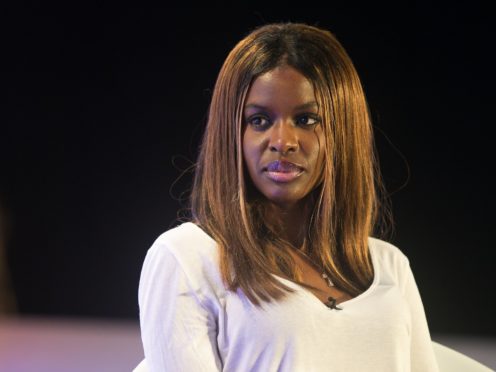June Sarpong hopes to help a “whole new generation of diverse voices” break into the “exclusive” world of literature through her new publishing imprint.
The broadcaster and activist, who heads up the fledgling HQ Creative Inclusion Lab, said there were too few diverse authors finding success in the mainstream and that she could “probably count them all on two hands”.
HQ Creative Inclusion Lab, launched by HQ – a division of HarperCollins Publishers, aims to make the industry more inclusive and accessible and provide a platform for unheard voices from diverse, disabled and working-class backgrounds.
It has received more than 50 submissions since launching last week.
Sarpong, who is the BBC’s first director of creative diversity, is leading the imprint as it seeks submissions from unagented, first-time authors writing fiction or non-fiction for adults.
She told the PA news agency: “Literature in itself can be quite exclusive in that often we have only looked to a particular kind of person as having the ability to be able to express themselves on paper – and to put their thoughts into words and then into a manuscript or some sort of document that people will be happy to read. I think that has been the case for a very long time.
“Look at women having to write under male pseudonyms. Even JK Rowling, that’s not that long ago. There has been a long established way of doing things and it is not going to change overnight.
“Yes, over the past few years we have had some fantastic breakthroughs but they haven’t been the norm. We can list those names. We know them off the top of our heads. We can probably count them all on two hands.
We are incredibly proud to be launching a new imprint – HQ Creative Inclusion Lab (HQ CIL) – with @junesarpong!
Created to increase representation and inclusivity, HQ CIL will discover debut authors from underrepresented communities.
Learn more: https://t.co/7pJvLfZ26j pic.twitter.com/QVcmQrPesN
— HQ Stories (@HQstories) July 1, 2021
“Really, what I hope is that we are able to create a whole new generation of diverse voices, telling very different types of stories to a mainstream audience.
“That’s what I really want to get across here. This is not diverse stories just for diverse audiences. No, we see this as stories that will reach and connect with as wide an audience as possible.”
Sarpong said she did not expect authors published by the imprint to be writing about only “diverse issues”.
She added: “The way we see it, it is just having that different perspective, that different lens on something in itself will give you a different product, even if it is about something we are all familiar with.
“We are not pigeonholing any of our writers to just write about their identity group, not at all.”
